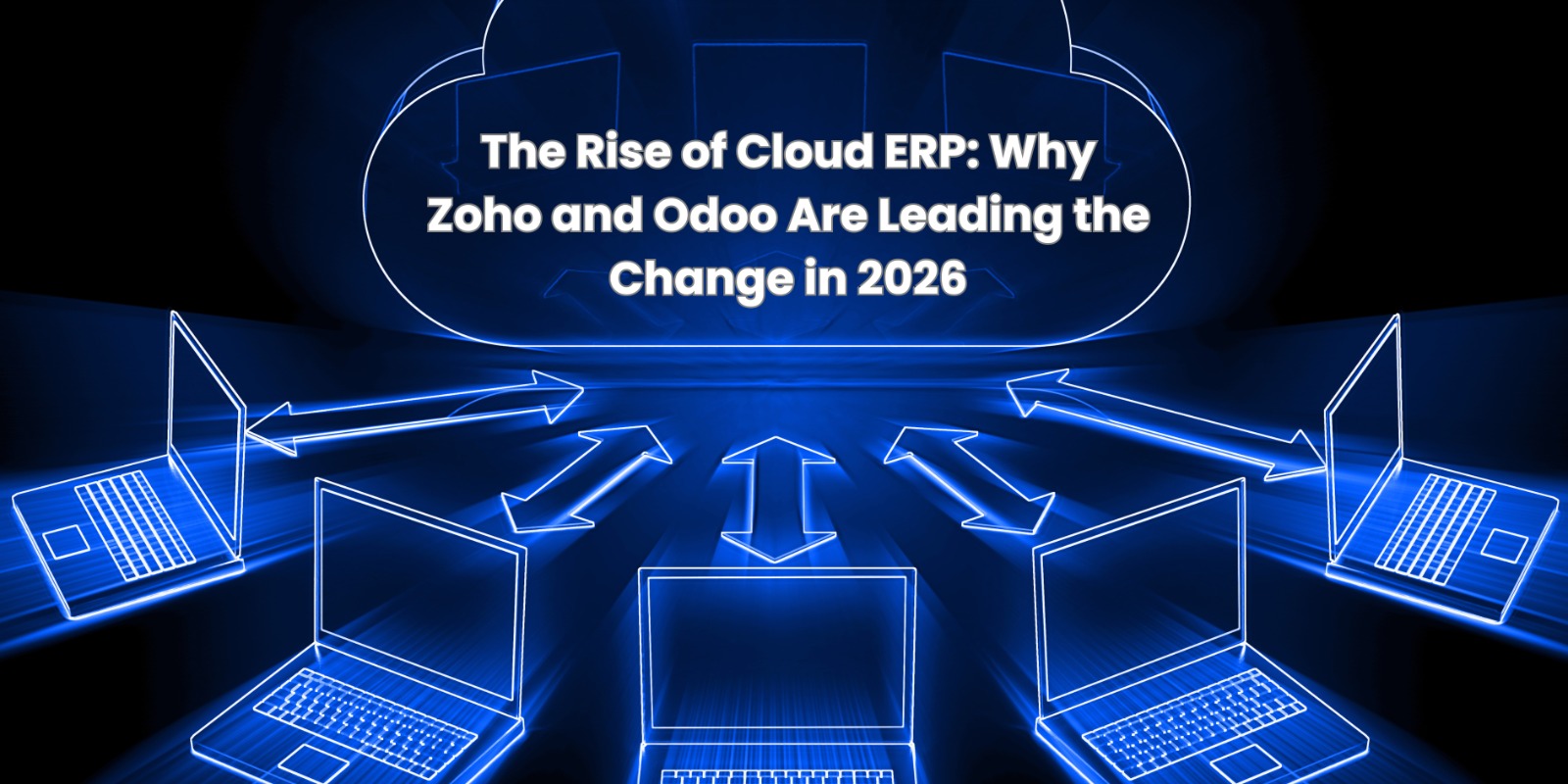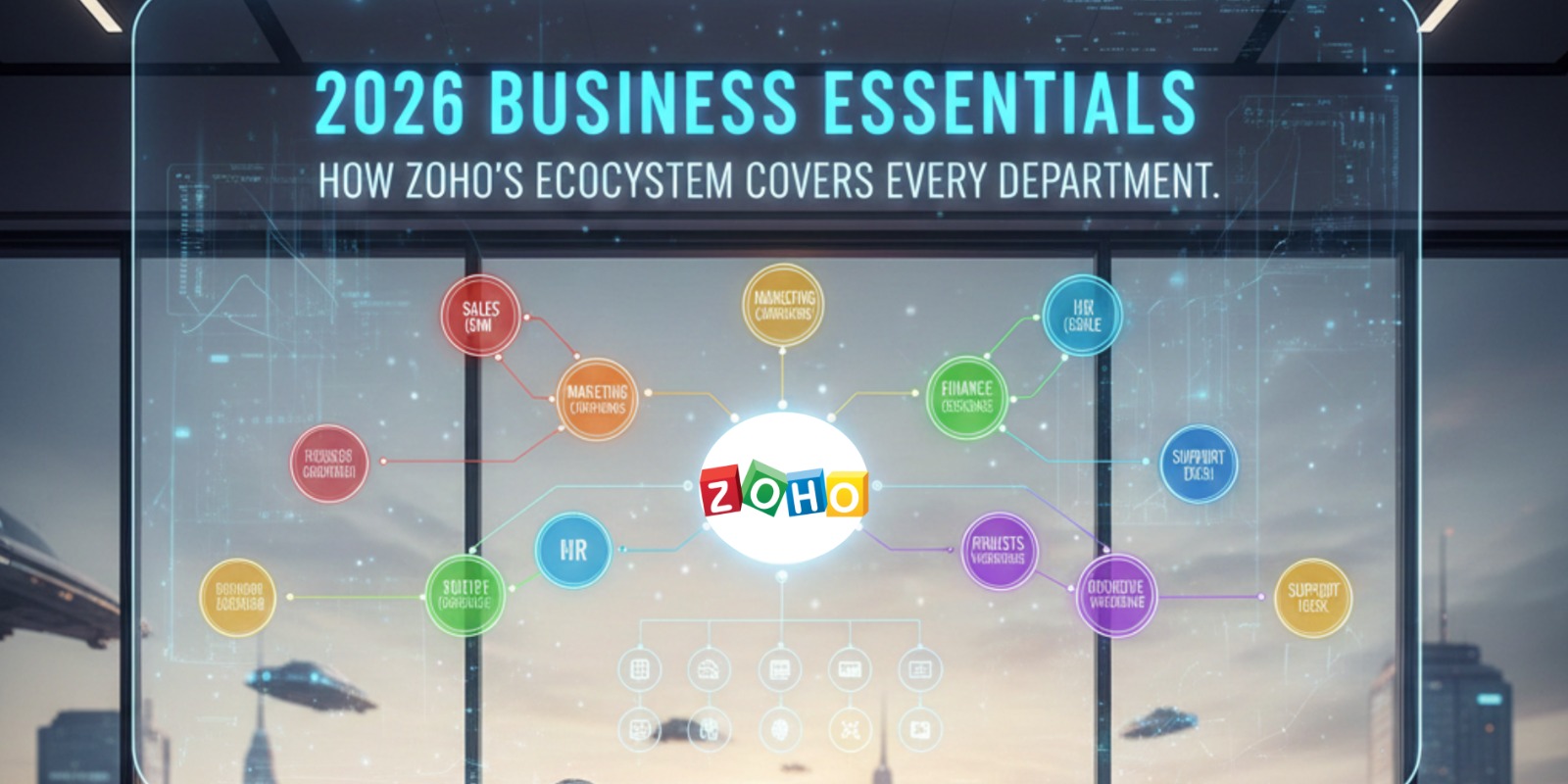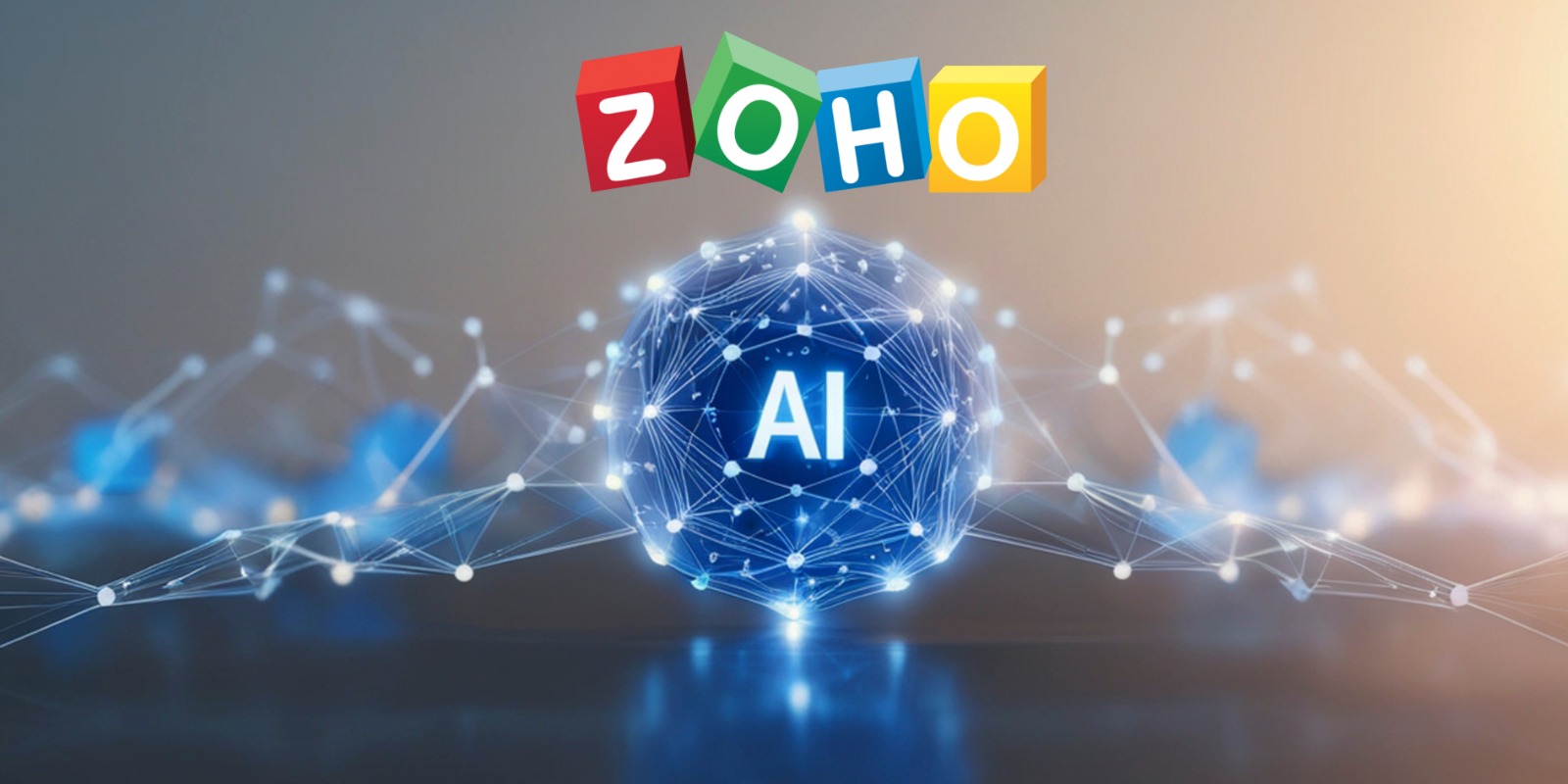Table of Contents
Over the past few years, one thing has become crystal clear:
Businesses can no longer survive on disconnected tools, messy spreadsheets, and old desktop software.
As companies across every region — from fast-growing startups to large enterprises — shift their operations online, Cloud ERPs like Zoho and Odoo are becoming the backbone of modern business management.
2026 is the turning point.
A year where businesses choose real-time data, automation, AI, and complete integration over manual processes and outdated systems.
Let’s explore why cloud ERP adoption is exploding, what real-life problems it solves, and why Zoho and Odoo are leading this global movement.
The Real-Life Problems Forcing Businesses to Change
Before we talk about solutions, let’s talk about reality — the actual challenges businesses face every day:
1. Too Many Separate Tools (Nothing Talks to Each Other)
The sales team uses one tool.
Finance uses another.
HR uses spreadsheets.
Warehouse uses WhatsApp.
This creates:
Delays
Errors
Missing data
Confusion
No integration → No control.
2. Zero Real-Time Visibility
Business owners still ask:
- “How much stock do we have now?”
- “What is our current cash flow?”
- “What is today’s sales performance?”
If the answer requires phone calls, screenshots, or waiting —
The business is already behind.
3. Manual Work = Slow Growth
Invoice typing.
Manual data entry.
Excel reporting.
Checking emails for approvals.
This wastes hours daily and increases mistakes.
Manual work is the biggest hidden cost inside any business.
4. Customers Want Faster Answers
If you can’t give real-time updates, clients lose trust — and move to faster competitors.
5. Audits & Compliance Are Stressful
Paper files, missing documents, and messy records make audits a nightmare.
These problems are universal — affecting companies in the UAE, USA, Africa, Gulf, and Western markets.
And they all point to one solution:
a single cloud system that manages everything.
Why Cloud ERP Is the Future

Cloud ERP isn’t “nice to have” anymore.
It’s becoming the foundation of modern business operations because it solves the problems above with one major shift:
Everything runs in one connected system — sales, accounts, inventory, HR, CRM, support, projects, and reports.
Here’s why it’s exploding in 2026:
1. Real-Time Information, Anytime, Anywhere
You can check business performance from your office, home, or even while traveling.
Cloud ERPs give you:
- Live dashboards
- Real-time inventory
- Updated accounts
- Instant sales numbers
- Current cash flow
No waiting. No delays. Zero guesswork.
2. Complete Automation
Automation replaces hours of manual effort:
- Automatically send invoices
- Auto-post payments and reminders
- Auto-update stock levels
- Auto-calculate taxes
- Auto-generate reports
- Auto-approve expenses
- Auto-create purchase orders
This saves massive time and reduces human error.
3. No Installation, No Hardware, No IT Team
Cloud ERPs run fully online.
You don’t need servers, maintenance, or upgrades — everything updates automatically.
Small businesses benefit the most because they get enterprise-level features at low cost.
4. Perfect for Remote & Hybrid Teams
Teams across different locations — even different countries — can collaborate in real-time.
5. Built for Multi-Currency, Multi-Tax, Multi-Language
Cloud ERPs like Zoho and Odoo support:
Multi-country operations
Multiple currencies
VAT, GST, Sales Tax
Multi-language users
Perfect for global trade, cross-border e-commerce, and expanding companies.
Why Zoho and Odoo Are Leading the Cloud ERP Revolution

Zoho and Odoo stand out in 2026 for one big reason:
They offer powerful ERP features without the massive cost of traditional platforms like SAP or Oracle.
Let’s break down why they dominate:
Zoho: Simplicity + Smart Automation
Zoho is loved for being easy to use, lightweight, and highly automated. It’s ideal for SMEs and service-based businesses.
New Strengths in 2026:
- AI-powered automation inside Zoho Books
- Unified Zoho One ecosystem (40+ apps connected)
- Faster mobile apps
- Intelligent dashboards
- Smart inventory forecasting
- WhatsApp communication built-in
- Strong compliance and tax automation
Zoho = perfect for fast implementation & quick results.
Odoo: Flexibility + Deep Customization
Odoo is the most customizable ERP in the world — great for growing companies and industries with complex workflows.
New Strengths in Odoo 19:
- New redesigned UI
- Lightning-fast performance
- AI-driven accounting (duplicate detection, smart matching)
- Advanced inventory & manufacturing features
- Smart HR and payroll upgrades
- Composite annual financial reports
- Seamless module integration
- One-click automation everywhere
Odoo = perfect for scaling companies that want full control.
The Real Impact on Businesses
Companies adopting Cloud ERPs in 2026 experience:
- 40–70% reduction in manual work
- 3× faster decision-making
- 99% accuracy in inventory & finance
- Higher customer satisfaction
- Stress-free audits
- Faster scaling into new markets
Cloud ERPs turn businesses from reactive → proactive.
Conclusion: 2026 Belongs to Cloud ERP
If you’re still managing your operations with:
❌ spreadsheets
❌ outdated software
❌ disconnected apps
❌ manual approvals
❌ inconsistent data
Then 2026 is your year to upgrade.
Cloud ERPs like Zoho and Odoo are no longer optional — they’re essential for survival, growth, and global competitiveness.
They bring clarity, automation, speed, and confidence into your business — all at an affordable cost.
“The companies that switch to Cloud ERP in 2026 will be the companies that lead in 2030.”








Post Comment